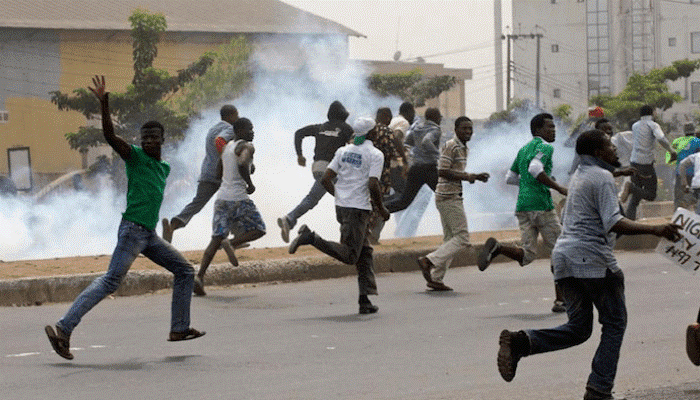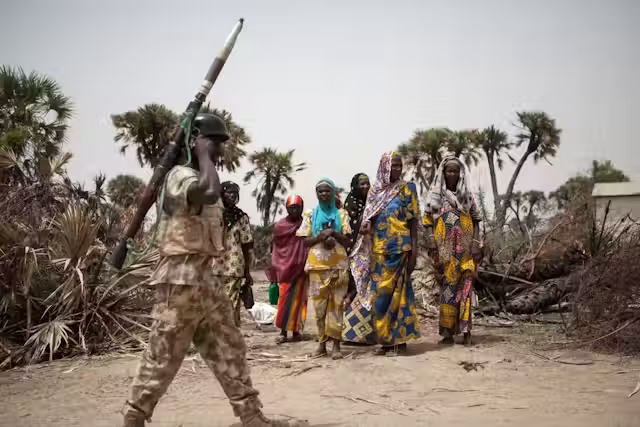Insecurity has become a pervasive concern in Nigeria, prompting widespread worry among citizens. In the intricate mosaic of nations, the fundamental responsibility of any government is to ensure the safety, security, and well-being of its citizens. However, Nigeria finds itself ensnared in a complex web of challenges, where the assurance of safety has become an elusive promise. A closer examination of the situation reveals a disheartening reality—one that spans decades of inefficiency, particularly in the realm of security.
For years, successive Nigerian governments have grappled with the inability to secure the lives and property of their people. The gravity of this failure is underscored by the emergence and proliferation of terrorist groups, most notably Boko Haram, which has entrenched itself in various parts of the country. Since 2009, when Boko Haram’s influence first manifested under the leadership of Mohammed Yusuf, the group has evolved, forming alliances with international terrorist organizations, and spreading its influence across Nigeria.
The landscape of terror in Nigeria has further expanded with the rise of banditry, initially introduced as a political tool in 2014. Over time, these bandits have transformed into a full-fledged terrorist group, causing havoc in the Northwest and encroaching into the Middle Belt and Southern regions, where they now control vast forested areas. The consequence has had a devastating impact on agriculture, as farmers, in fear for their lives, are coerced into paying terrorists to access their farms, leading to food crises and insecurity.
In the Eastern and Middle Belt regions, killer herdsmen have unleashed a reign of terror, committing atrocities that include murder, rape, and land seizure. Shockingly, according to the World Terrorism Index, killer herdsmen rank as the fourth deadliest terrorist group globally, placing Nigeria in the alarming position of hosting three of the world’s deadliest terrorist organizations.
The struggle against terrorism and insecurity in Nigeria has been marked by valiant efforts from security forces. However, systemic challenges such as political will, operational strategies, and the procurement of necessary resources have hindered the effectiveness of these efforts. The political landscape, especially the prioritization of politics over security, has further complicated the fight against terror.

During Goodluck Jonathan’s presidency, a lackadaisical approach to insecurity prevailed, influenced by political pressures and emotional blackmail. Even attempts to procure weapons were thwarted by foreign governments, adding a layer of complexity to an already dire situation. Subsequent administrations, including that of Muhammadu Buhari, faced challenges in recognizing the severity of banditry and killer herdsmen, allowing these groups to solidify their presence and wreak havoc across the nation.
To address the deepening crisis, the president, as the commander-in-chief, must exhibit unwavering political will and implement decisive measures. Treating terror groups and their financiers as terrorists, rather than mere criminals, is crucial. Providing specific orders to military and law enforcement officials and holding them accountable for their actions or inaction is imperative.
Extraordinary measures, including the declaration of a state of emergency on national security, should be considered. Collaborative efforts between the federal government and state governors to establish civil Joint Task Groups, comprising retired military and police officers, hunters, and volunteers, can complement existing security forces.
Accountability must be upheld, with commanders and officers facing consequences for complacency or collusion. A transparent and swift process is necessary to investigate security lapses, such as prison breaks, ensuring that those responsible are held accountable.
Looking forward, the president should convene a technical team to expedite the implementation of State Police and Community Police. These steps, if taken promptly, can mitigate the looming threat of Nigeria being overrun by terrorism and insecurity.

President Bola Tinubu, who assumed office in 2023, faces a critical juncture in steering the nation away from the precipice. The urgency for decisive action cannot be overstated, as the country grapples with over 200 reported violent attacks in the Federal Capital Territory alone. The future of Nigeria rests on the ability of its leaders to unite in the face of adversity and confront the multifaceted challenges that threaten the very fabric of the nation.
As Nigeria navigates through this turbulent period, it is paramount that a comprehensive and sustainable security strategy is devised, one that involves not only the government but also engages the collective will and resilience of the Nigerian people. The restoration of peace and security requires a concerted effort that transcends political divides and focuses on the common goal of safeguarding the nation and its citizens. Only through such unity and unwavering commitment can Nigeria emerge from the shadows of insecurity and set a course towards a more stable and prosperous future.
Sources
- https://www.thecable.ng/kidnapping-terrorism-politics-and-national-security
- https://www.premiumtimesng.com/news/top-news/651875-northern-governors-meet-in-kaduna-discuss-insecurity-other-issues.html
- https://www.thisdaylive.com/index.php/2023/07/18/house-urges-service-chiefs-to-collectively-tackle-reduce-insecurity
- https://theconversation.com/nigeria-insecurity-2022-was-a-bad-year-and-points-to-need-for-major-reforms-194554




